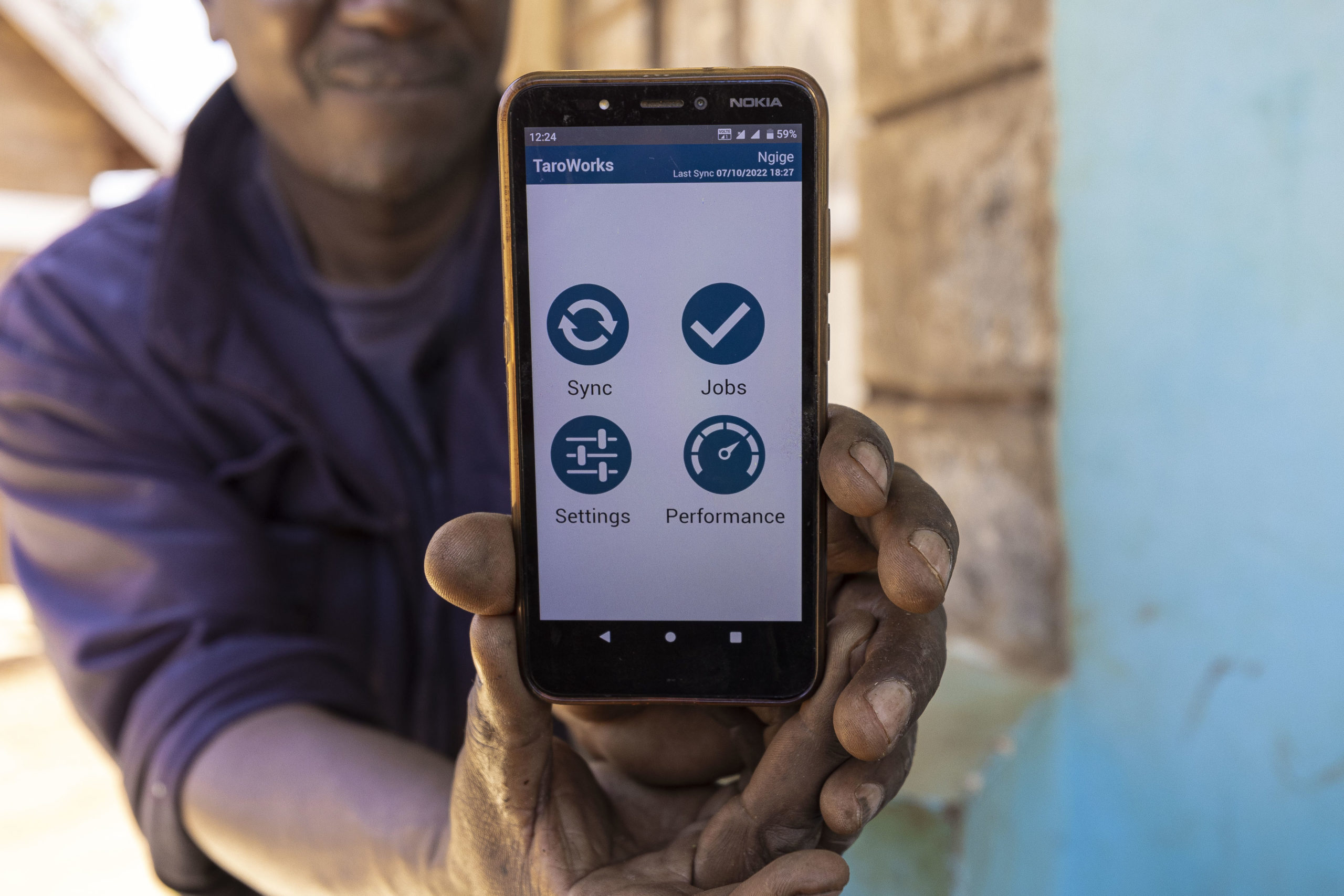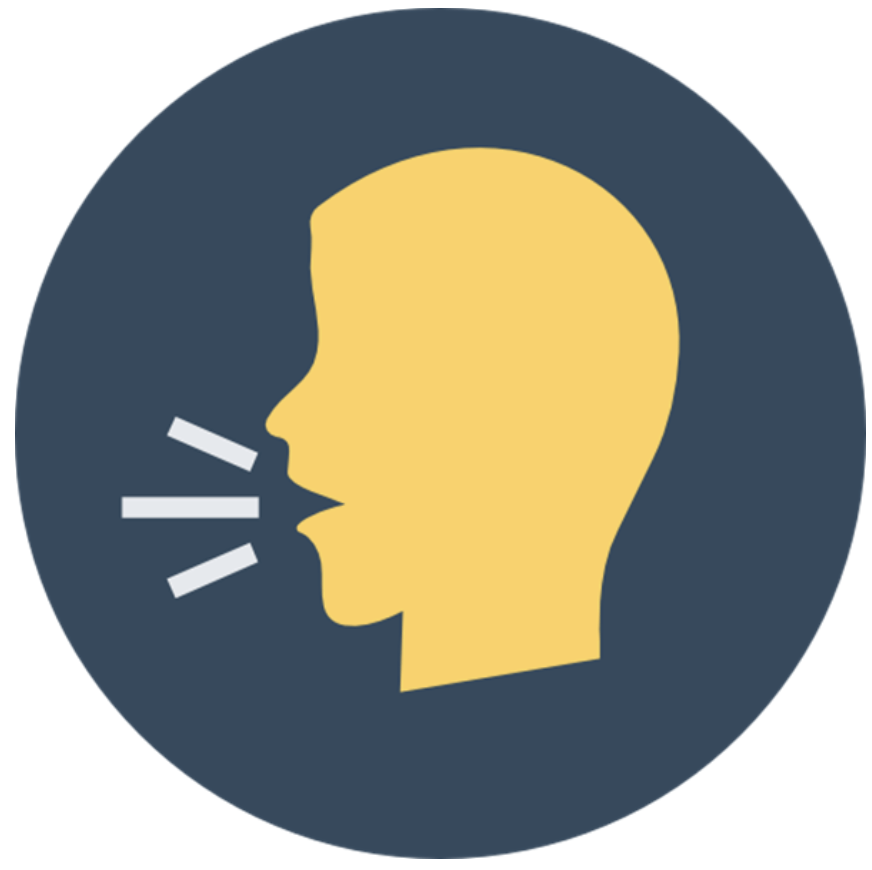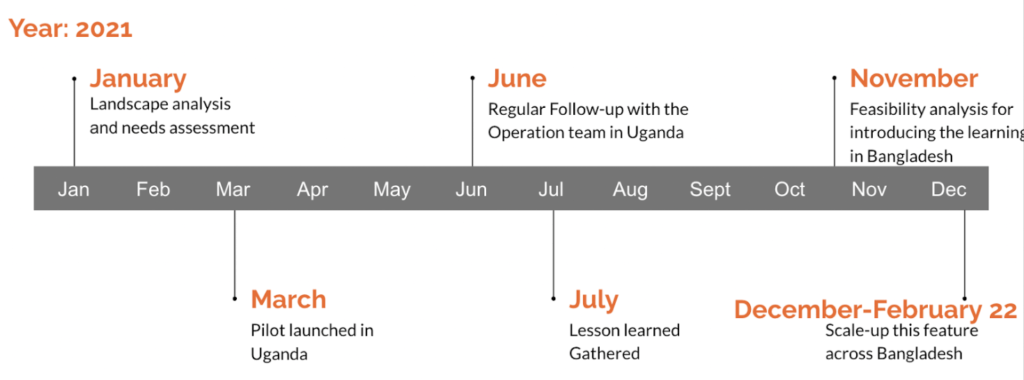
Search
As technology advances, we have an unprecedented ability to connect to more people, globally. However, just because our networks are expanding rapidly doesn’t mean that this technology is accessible to all. One of the goals at TaroWorks is to empower all field agents equally with inclusive technology and data. As technology grows and platforms remain online, organizations need robust tools to ensure inclusivity and accessibility – especially for technology users with disabilities.

On October 29, 2022, Elaine Chang, CEO, TaroWorks, joined Shifur Rahman, Senior Manager of the Skills for Development Programme (SDP), BRAC, at the NetHope Global Summit 2022 to discuss how BRAC is leveraging Salesforce and TaroWorks for both their visually-impaired mobile user field teams and the end-beneficiary entrepreneurs with visual impairments.
BRAC Uganda, in partnership with Humanity & Inclusion (HI) and the National Union of Women with Disability of Uganda launched the ‘Disability-Inclusive Ultra-Poor Graduation Programme’ in Uganda, which aims to enroll participants with disabilities (15% of the program) and women participants (70% of the program) to the program. This program places vulnerable households and people with disabilities on an upward trajectory out of ultra-poverty. The goal is to mainstream disability inclusiveness, increase accountability and capacity of development partners and inform global disability-inclusive programming.
In addition to this program, BRAC also established the Skills Development Programme (SDP) in 2015 in Bangladesh with the objective of encouraging people to include adolescents and youth in businesses. BRAC does this by immersing youth in inclusive markets through skills training and employment services.
Since 2016, BRAC has been using TaroWorks as a data collection tool for their Skills Development Program (SDP) to help track their beneficiaries’ performance during interventions. Soon, BRAC came to TaroWorks with a new challenge towards inclusive technology.
BRAC came to TaroWorks with new requirements. The DIG Uganda Program required a real time data collection system, offline accessibility to data, and most importantly, the ability for staff with visual disabilities to use the app to collect field data. TaroWorks was up to the task of creating a way for visually impaired field agents to be able to use our offline technology. The goal was to make it easy to navigate across the last mile as it is the first mile, for everyone.

We believe that data can improve and transform how organizations deliver impact.
Elaine Change, CEO of TaroWorks
In order to do this, TaroWorks needed to create a strong connection with Android’s Talkback feature – a screen reader function. This function reads out links, buttons, labels, and announcements once they are clicked, so anyone with a visual impairment can have full access to the information. In order to ensure success, TaroWorks worked to create more meaningful descriptions for its functionality and made sure all buttons make sense so the visually impaired users can navigate easily. In addition to this, TaroWorks created the ability to increase font sizes for those who are partially visually impaired.

Once TaroWorks supported the Android Talkback feature, BRAC started to pilot the new functionality. Their goals for this project included implementing the new feature for real-time data collection, reducing the workload for the frontline staff, and increasing operational efficiency by providing data intelligence support.
When creating this solution, BRAC did not want to reinvent the wheel. They leveraged existing technology to allow them to go beyond simple data collection and track their programme beneficiaries. The pilot phase started in January 2021 and finished in December 2022. Once this was completed, BRAC began its scale-up journey. During the BRAC Skills Development Program scale-up, the Android Talkback feature was used at 60 branches across Bangladesh for the ‘disability inclusive vocational training and youth employment’ program. This increased the total number of people with disabilities in the project to 1170, with an additional 85 staff assigned to the project. Participants having disabilities received apprenticeship-based training for six months and and after were given employment opportunities.
The [talkback] feature of the app supported us to complete the survey which was not possible in the past.
Field worker, BRAC
When BRAC piloted the system, their priority was to design for their end user. They learned to be ‘rapid and scrappy’ in their deployment. Rahman explained that “it’s not essential to perfect the product before you deploy”. BRAC learned that it was best to build and deploy the product as you are implementing it. Rahman encourages anyone implementing TaroWorks to embed themselves within their operations to truly understand how their operations run. He explained that field operations are run differently than how reports are written.
In order to see success in these programs, it is vital to foster inclusivity in the workplace. To do so, BRAC asked themselves ‘how do you empower workforces with the right skills?” and “how do you influence policies and education so that there are more opportunities for those who need it?”
One of the ways they did this was through the process of matchmaking with the shop owners of their placements using the data from TaroWorks. This process includes placing their participants with disabilities with compatible employers to ensure a smaller dropout rate, and increase opportunities. This also helps identify profiles that help to increase the retention of participants with disabilities. There is a stigma with people with disabilities in the workplace. The main goal of BRACs program is to ensure disabled learners are also placed.
Since the project has scaled, BRAC staff have reported a positive difference and efficiency in TaroWorks. Now, field staff don’t need to create any reports, which saves an average of three hours of their daily work life. Because of this, staff can invest more time in participants’ follow up , which improves the program quality. In addition to this, staff now have access to information to make data backend decisions – in the past most decisions were driven by intuition. They now own the product, and the number of requirements are coming from them to improve the products robustness.
POST TOPICS
NEXT POST
Sign up to receive emails with TaroWorks news, industry trends and best practices.
TaroWorks, a Grameen Foundation company.
Site by V+V